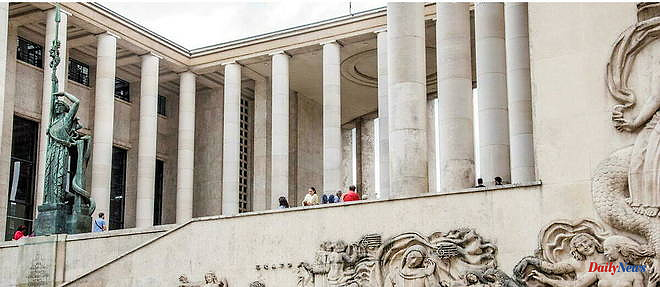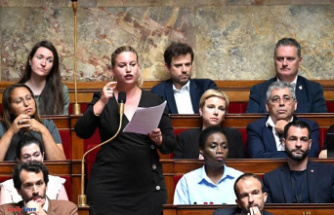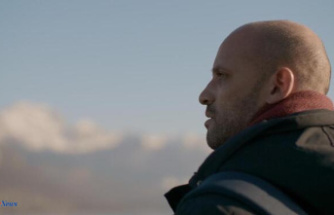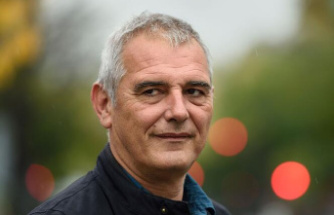The administrative court of Paris decides. The latter dismissed associations for the defense of children's rights demanding the removal of the painting Fuck Abstraction at the Palais de Tokyo, which they considered to be child pornography, according to an order issued on Tuesday.
This painting by Swiss artist Miriam Cahn represents "the silhouette of a man with a very powerful body, without a face, who imposes fellatio on a very fragile corpulence victim" and with his hands tied, describes the court, seized in summary proceedings ( an emergency procedure) by the associations Jurists for Children, Sharing Childhood, Facing Incest and Innocence in Danger.
This work is the subject of controversy, these associations seeing it as a work of a child pornography nature, in particular in the face of the museum and the defenders of artistic freedom. Twelve thousand people have signed an online petition to demand its removal.
Questioned by the deputy of the National Rally (RN, far right) Caroline Parmentier, the French Minister of Culture, Rima Abdul-Malak, had called last week not to "mix everything", reaffirming the "fight for the protection of the childhood and against all forms of violence". "Have you seen the whole exhibit?" Have you interacted with the mediators? Did you read the explanations? Because you can't take a work out of its context,” she continued, quoting the artist herself.
The administrative court, which heard the parties on Monday at a hearing, considered that "the work cannot [...] be understood outside of its context and the work of the artist Miriam Cahn, who aims to denounce the horrors of war, as recalled in the presentation document of the event distributed to the public".
He explains that it "deals with how sexuality is used as a weapon of war and refers to the abuses committed in the city of Boutcha in Ukraine during the Russian invasion, starkly representing the violence suffered by the Ukrainian population".
The court also points out that the Palais de Tokyo chose to exhibit the painting "in a separate room with other works likely to shock the public" and set up warning signs and mediators likely to respond. to questions from the public.
"Since February 17, 2023, the exhibition has welcomed 45,000 visitors without any difficulty having ever been noted by the Palais de Tokyo, which has not received any complaints or reports from visitors and has not identified any minors visiting the exhibit alone,” he added in his order. In a press release, the Palais de Tokyo welcomed the decision which "defends fundamental freedoms" and "gives him reason". However, he regrets "the instrumentalization of this work of art and the disregard for the fundamental role that museums all over the world play in defending freedoms while respecting human rights".
"Very disappointing", reacted to Agence France-Presse the lawyer for Face à l'inceste, Maître Mathieu Dahan. "The scenographic coherence of the exhibition, which globally shows many children, and that of the work require us to see a child. To tell us that there is a realistic part and a dreamlike part just for this contentious painting is not convincing,” he denounced.












